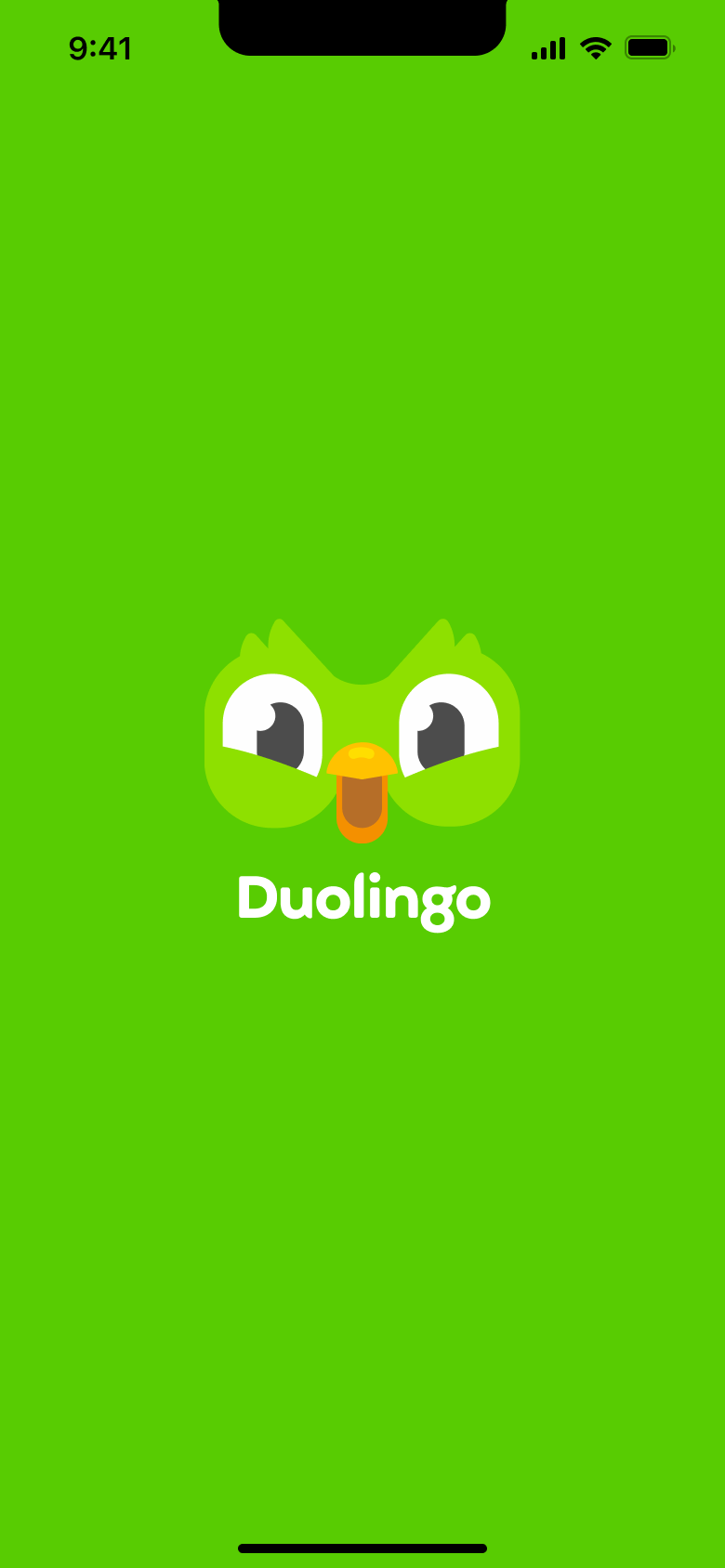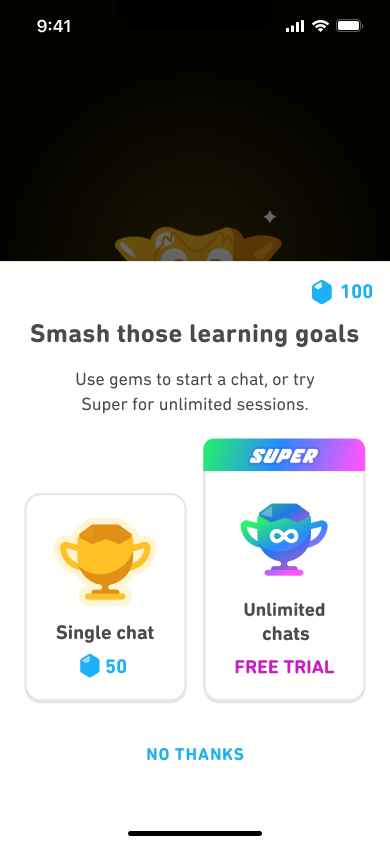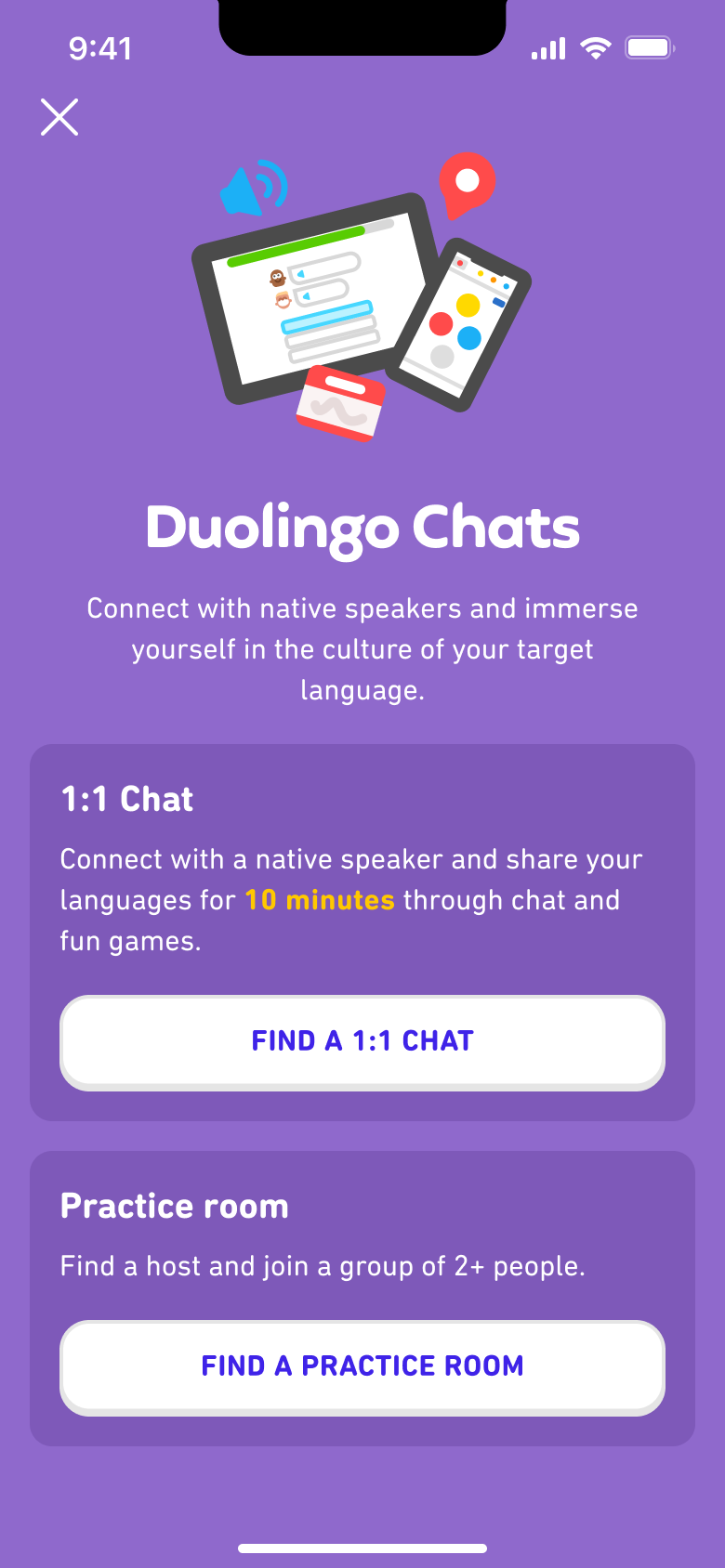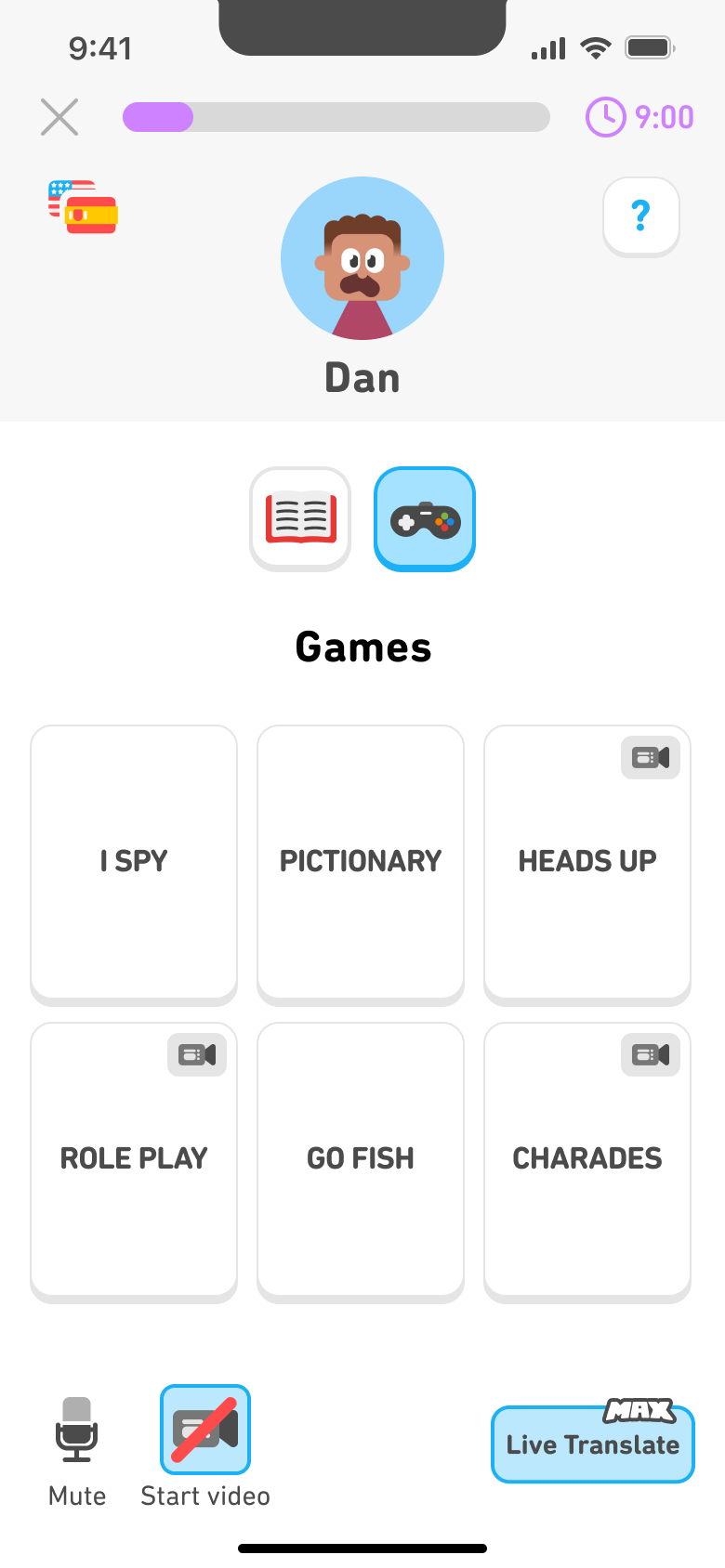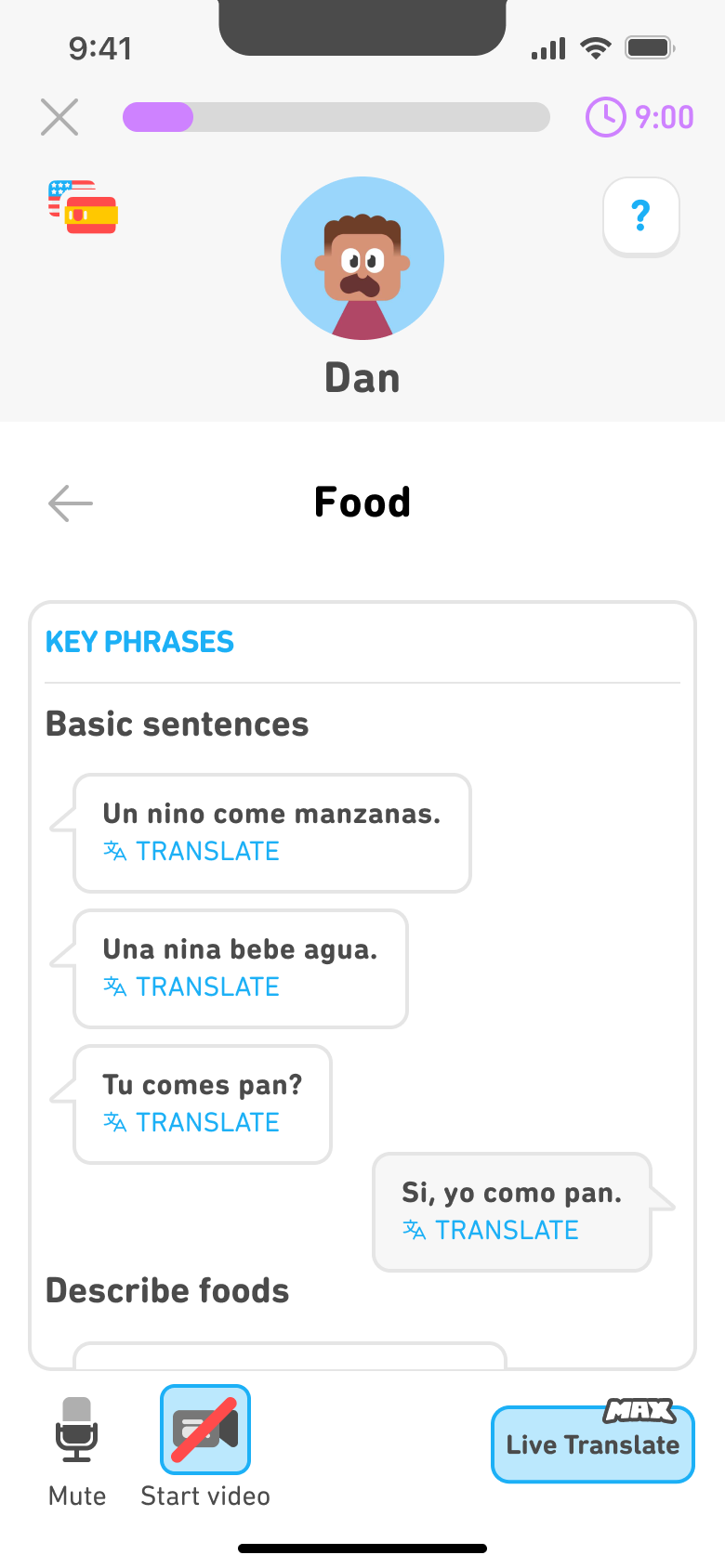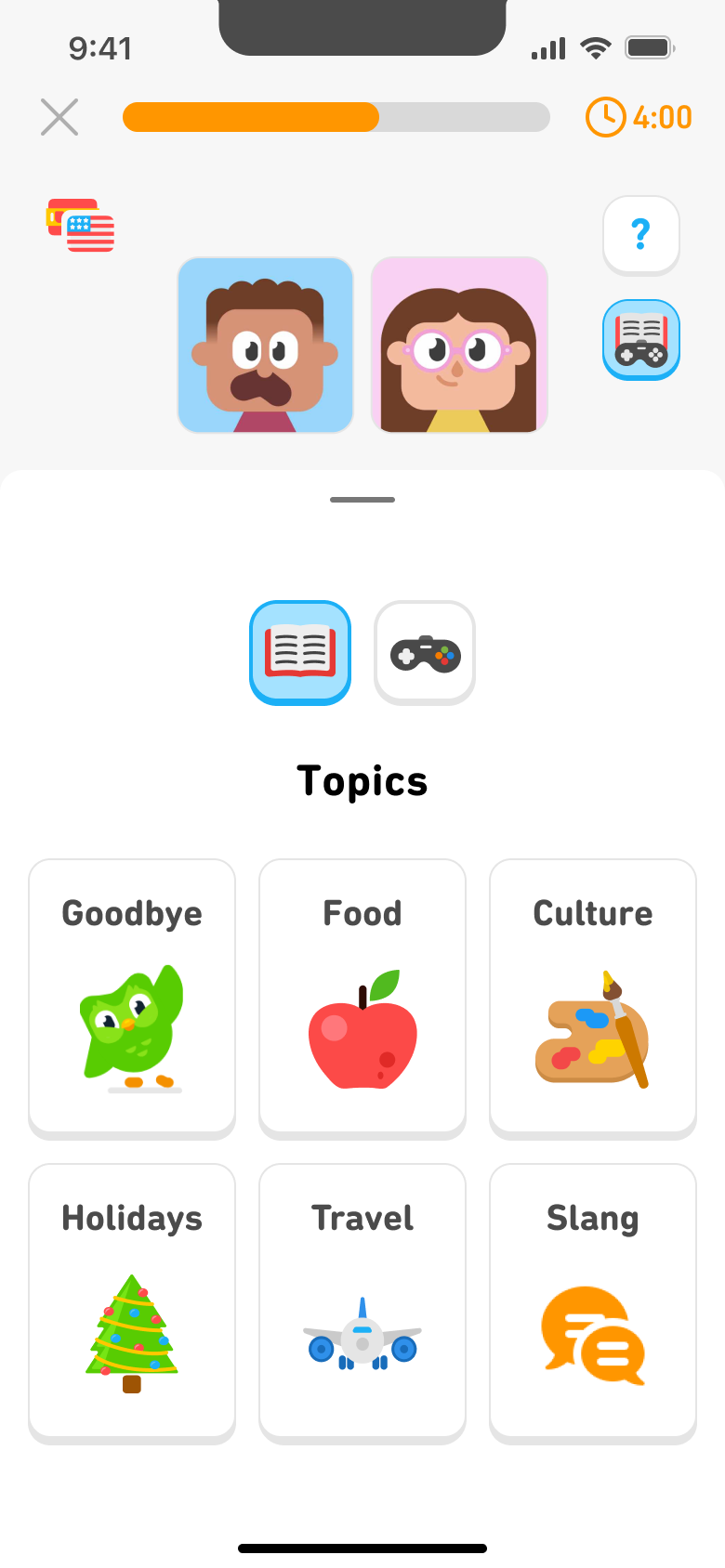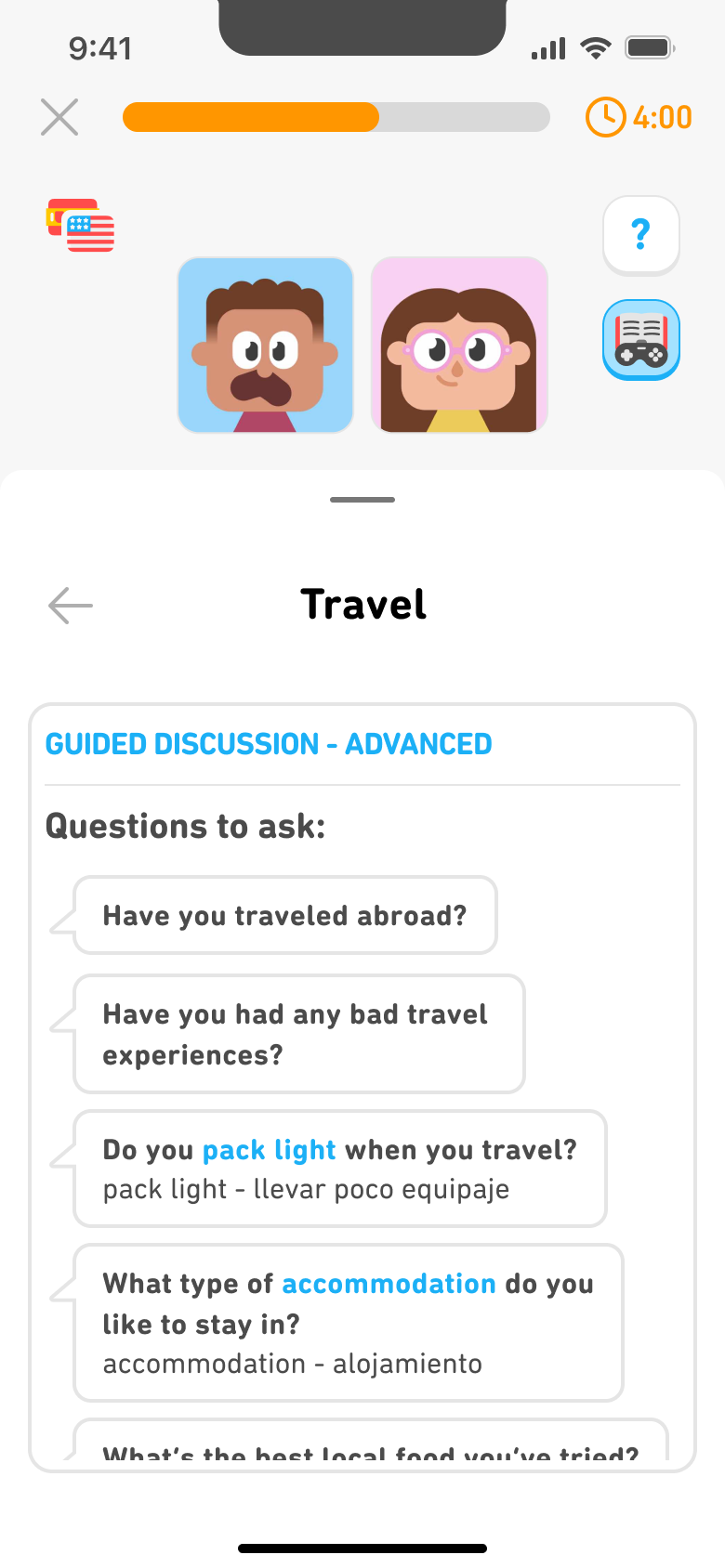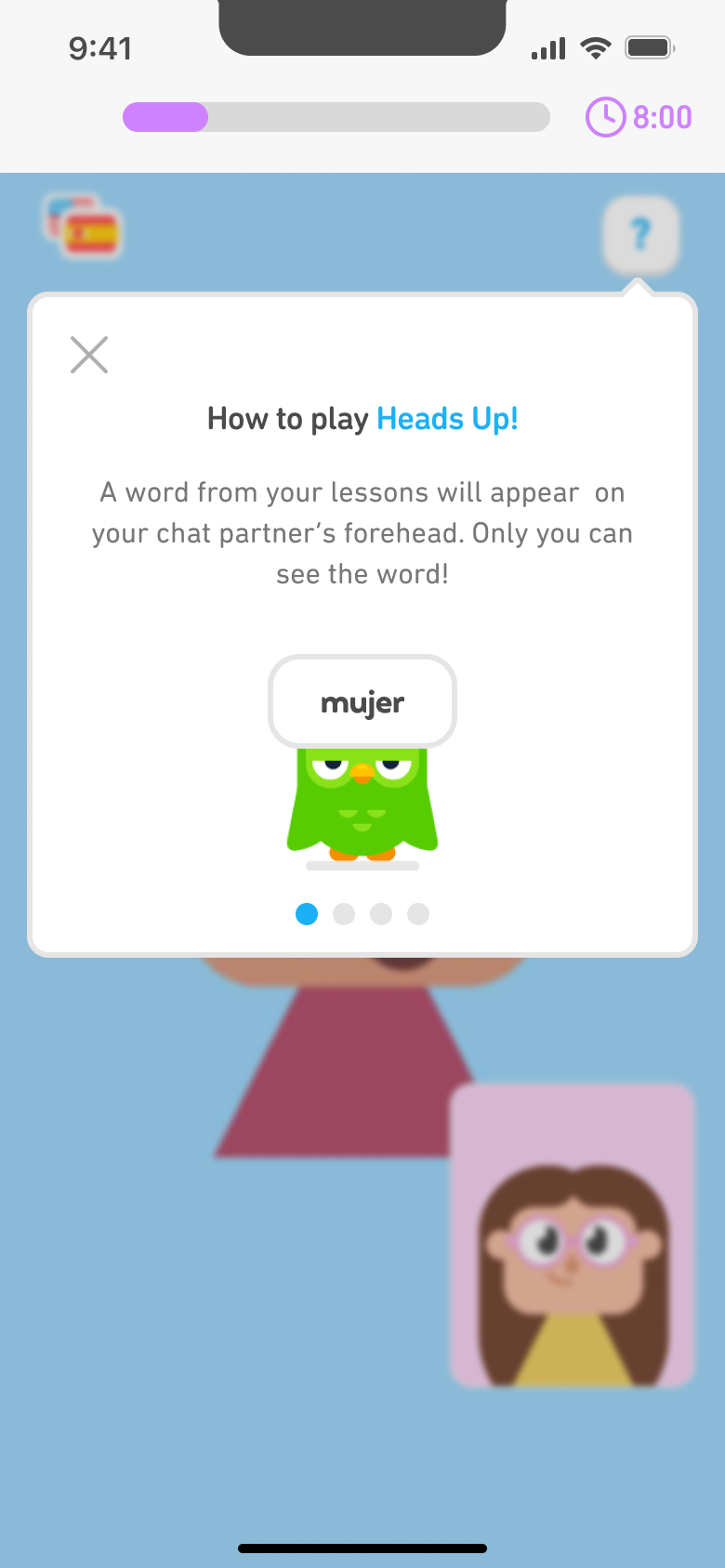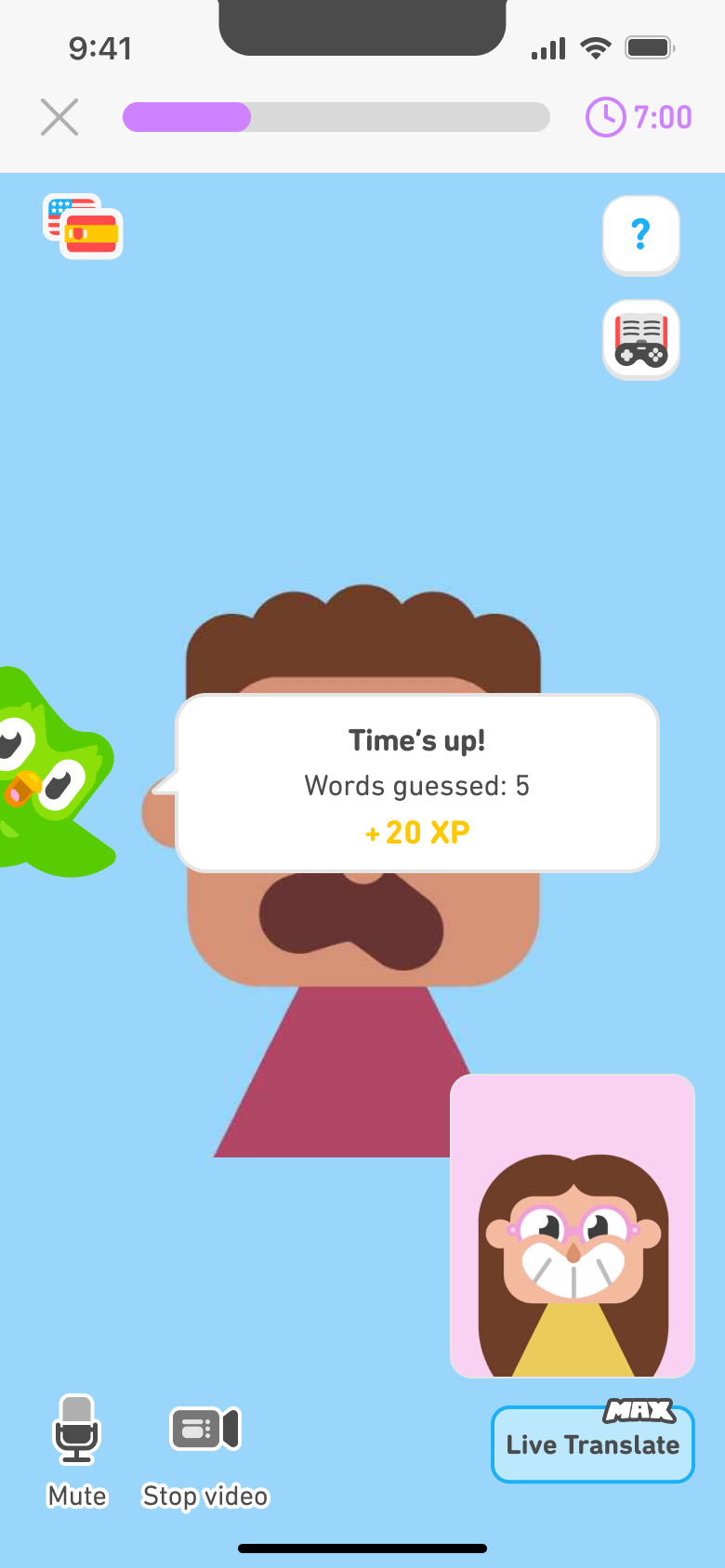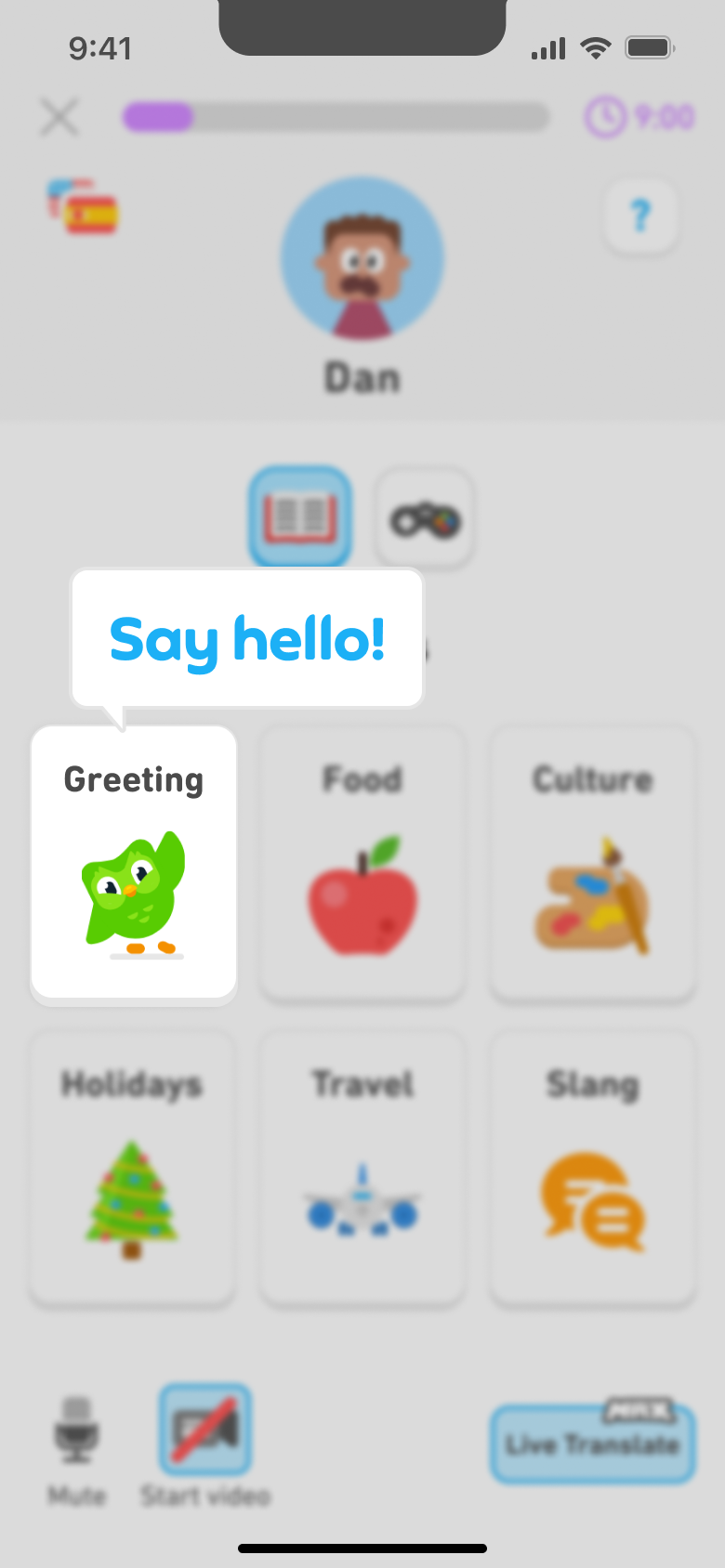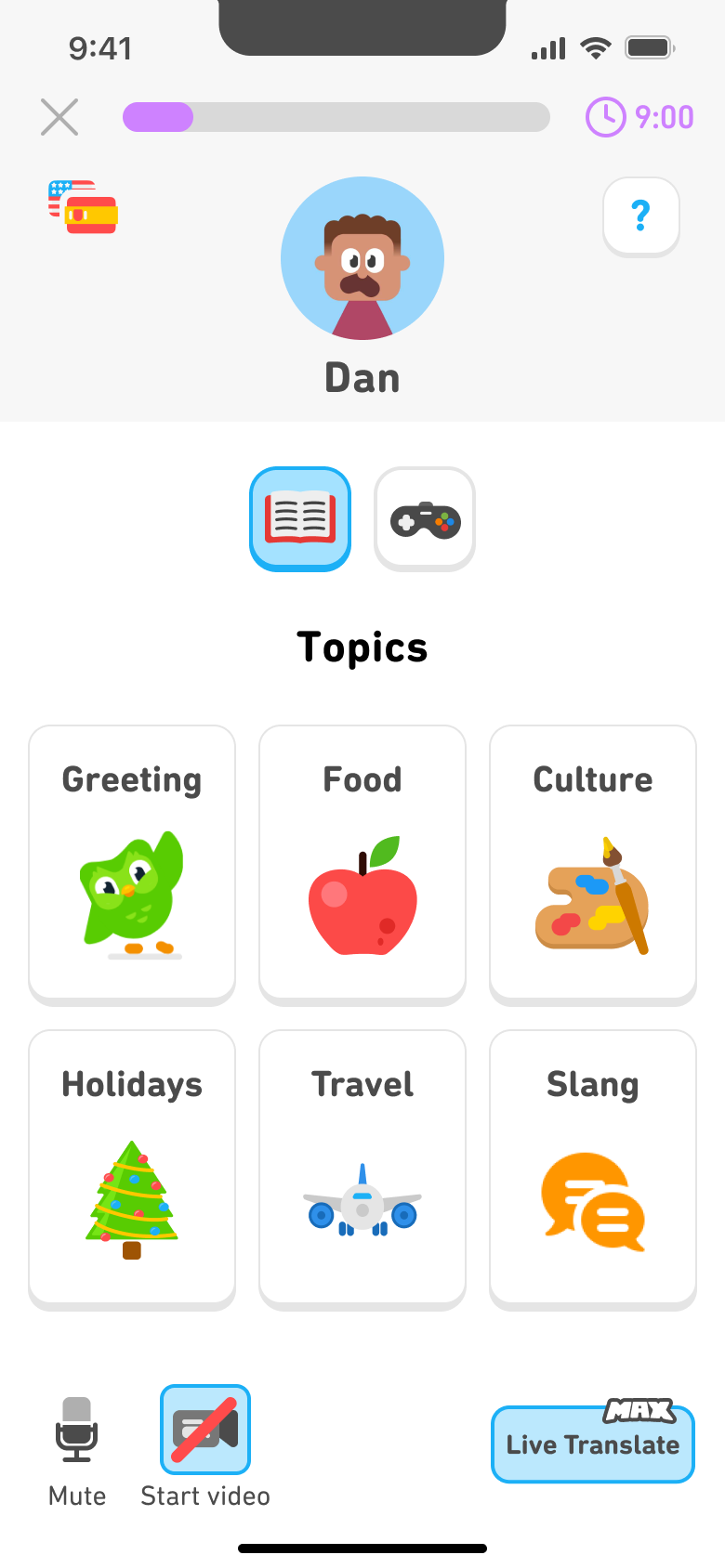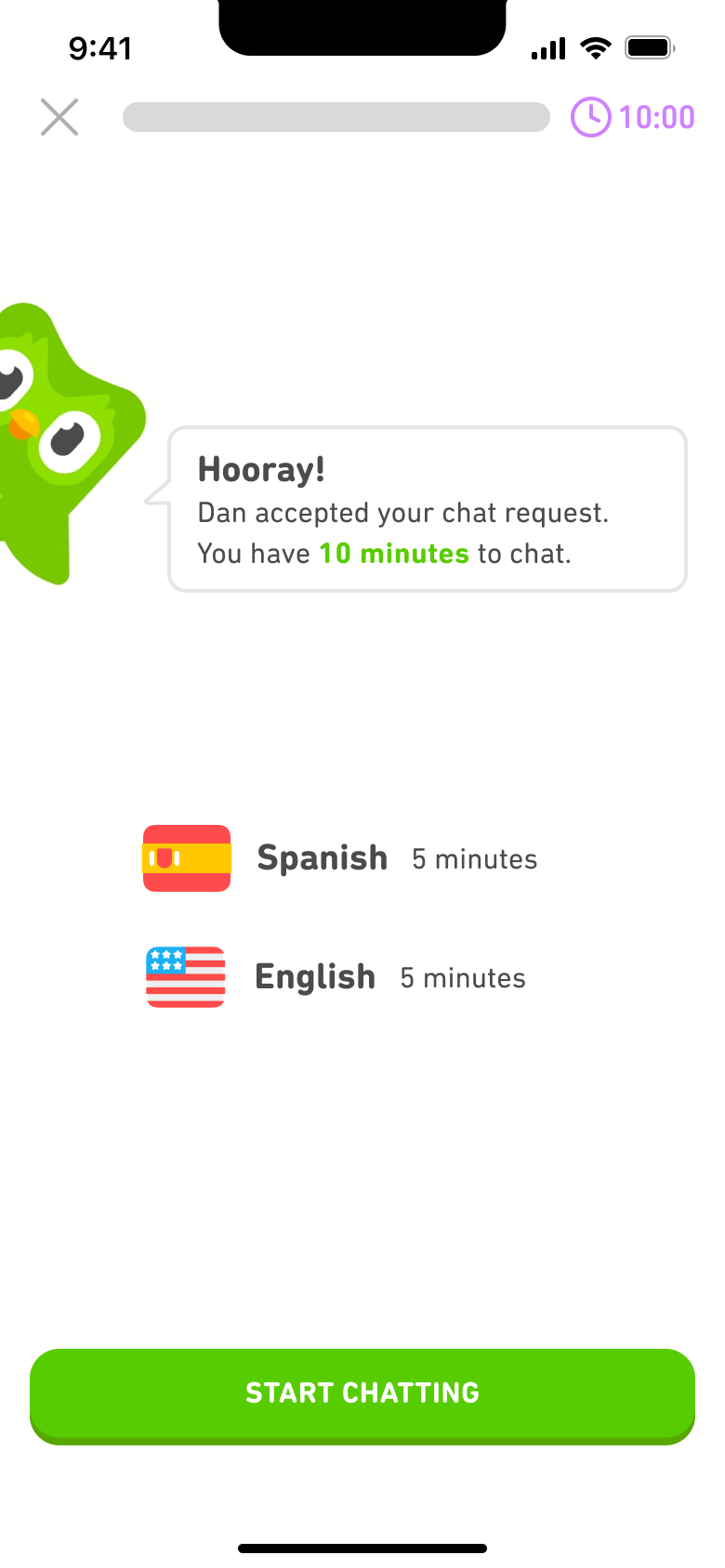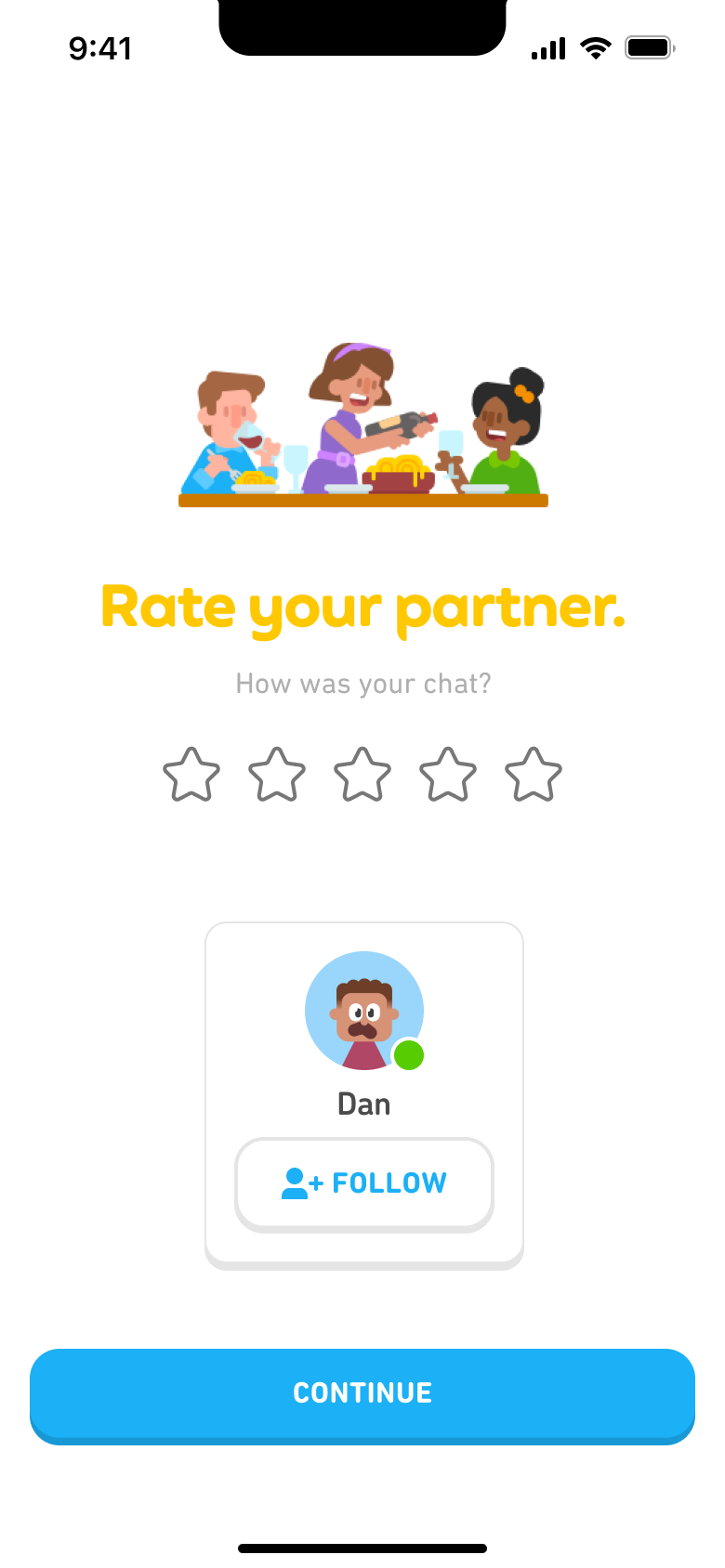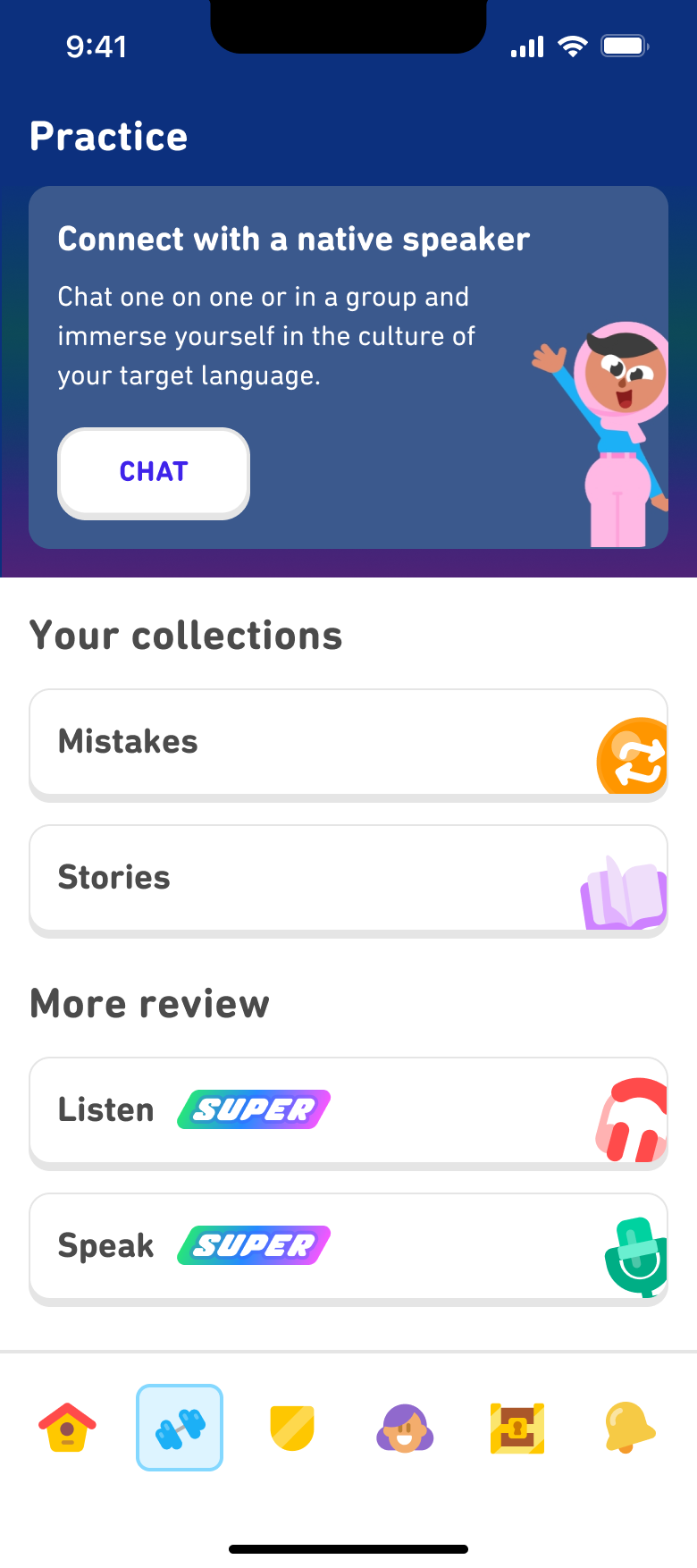
Duolingo Chats
Uniting learners for enriched language and cultural understanding
Challenge
IterateUX Design Challenge: Educational Feature Design with Duolingo
Users who want to learn new languages struggle to find, connect, and communicate with native speakers to help practice their conversation skills.
“Duolingo is ok for vocab as it’s fun and qyuick but it will never make you fluent. You need to actually speak to a human to build your speaking ability”
Roles & Responsibilities
UX Designers
Andy Wang, Dexter Lam, Molly Rhodes, Raymond Chou, Vanessa Fayad
Duration
August - September 2023
Solution
Create a feature that allows Duolingo users to connect and learn from native speakers through live chat, conversation prompts, and live translation.
Research & Discovery
Our goal is to see what other language platforms’ strengths and weaknesses in regard to their features and what opportunities and functionality we could add to Duolingo to enhance language acquisition and cultural understanding.
Competitive & Feature Analysis
Secondary Research
Surveys
Competitive & Feature Analysis
We wanted to focus on 5 language learning apps that other users recommend other than Duolingo to learn about their features and how they help users learn more efficiently or what could be improved on.
Using our findings from the competitive analysis we categorized what other apps have in comparison to features and functionality.
Secondary Research
We learned that Duolingo had a similar feature in the past called Duolingo Classes where users could take free or paid lessons with hosts based on skill level and interests.
The platform was discontinued on January 23, 2023 with possible reasons due to users not being aware that feature is live and there was no marketing pushing the feature out.
Users who have used the struggled with accessibility of using the feature where it was only available on PC and iOS but not Android.
User Surveys
To gather more information about users’ experience with language learning not just from learning apps but other platforms such as study books, online tutors, and other media. As well as understanding if Duolingo were to add a video feature to connect to native speakers, the parameters of how to learn via chat.
Define
Using our findings from our research we started to create assumptions and understand the users struggle with language learning. Creating possible solutions that fit for both experienced and new Duolingo users.
Affinity mapping
HMW & Problem Statement
Persona
User Flow
Affinity Mapping
To help organize our research finding we categorized into 5 topics that in regards what the users wants out of learning a language, current trends, and constraints.what the users wants out of learning a language, current trends, and constraints.
Problem Statement to How Might We’s
People who want to learn new languages struggle to find, connect, and communicate with native speakers to help practice their conversation skills
Organizing and condensing on how to implement a feature that allows users to learn languages through a native speaker, but still keeping in mind Duolingo’s gamification of language learning.
Looking into how long should users interact and to create natural conversations whether it be what each users goals in their preference. Adding prompts when chatting, segmenting the video chat to allow users to who wants to speak or learn, but overall we wanted to make sure that interactions were safe and productive.
User Personas & User Journey
To get a full understanding of the user, we created two personas that having language learning experience in regards to the spectrum of Duolingo users where Kate is a first time user vs. Dan having used Duolingo for a few years. Taking into account Kate’s user journey when using the Duolingo Chats feature with Dan.
Ideate & Prototype
Creating sketches and mockups to how the new Duolingo Chats feature would be implemented without disturbing the Duolingo ecosystem.
Sketches
Screen flow
Prototype
Paper Mockups & Sketches
General idea of the feature flow and other functions that could be included.
Duolingo Chats Prototype
For the prototype of the new feature, we wanted to showcase the user flow of how the feature can be included in the app. Going through the feature, the user can practice, find other users, and choose to chat via text or video.
Using prompts or games to create conversation as well as having users switch. The inclusion of letting the user rate and follow the other user to help create a more realistic user flow.
